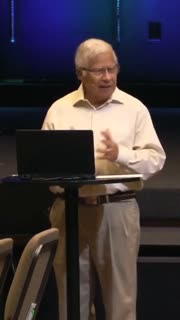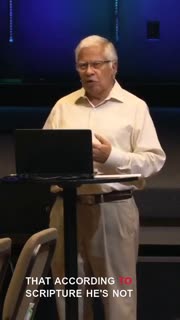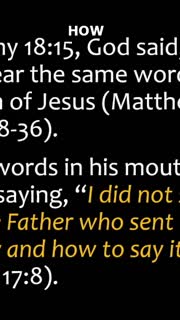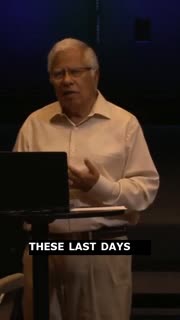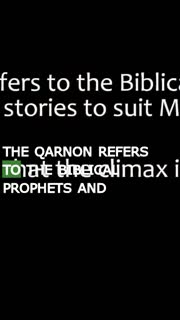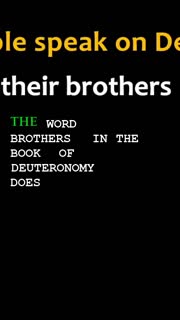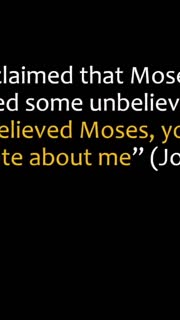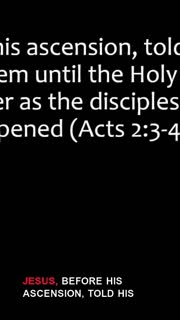Exploring Biblical Prophecies: Jesus vs. Muhammad
Devotional
Sermon Summary
Bible Study Guide
Sermon Clips
### Quotes for Outreach
1. "But then again, under the Great Commission, we are told that we should go not only preach and teach, but also to help others to become the disciples of Jesus. And then Peter also mentioned, yes, sanctify Jesus in your heart. And then he said, but at the same time, then he says, and always be ready to give the answer about the hope you have in Christ when people ask you. But of course, do it gently." [05:49] (36 seconds)
2. "I know that according to scripture he's not coming as a lamb of God anymore he's coming as the judge of the world and of course he's already king and so the establishment of the kingdom is there but their understanding is a little bit different on that and that little bit makes a big difference actually." [10:21] (22 seconds)
3. "See how easily it is that when you take the whole scripture in its stride, then it is safe. You are in safe premises there. And so that's what we see here. The Israelites pleaded that God speak to them through a mediator. A mediator only. Remember, when they saw at the mountain, Mount Sinai. When they saw all this fire and everything. They started thinking, oh no, no, no. This is not us. Moses, you take care of it. You are our mediator between God and us. And you will be. And so now, he's told them that a mediator will arrive like him as well." [34:46] (51 seconds)
4. "Because in these last days he has spoken to us through his son and God wants us that yes there will be a lot of upsetness there will be a lot of confusion around us but if we have our GPS in our hand and understand it and accept it and ask not only that GPS but also the Holy Spirit of God and tells you know many churches they talk about the Father they talk about Jesus but they don't talk about the Holy Spirit because the promise was not just with the Apostles the promise is with you and me too." [53:11] (51 seconds)
### Quotes for Members
1. "The Qarnon refers to the biblical prophets and rewrites their stories to suit Muhammad's mission and also to show that the climax is not Jesus but Muhammad see it becomes a big problem in the letter to the Hebrews it clearly says that although God spoke to our forefathers through all these prophets but in these last days he has spoken to us through his word he has spoken to us through his word his son period that's the whole message there." [07:39] (32 seconds)
2. "The word brothers in the book of Deuteronomy does not refer to another nation or people the word brothers in the book of Deuteronomy does not refer to another nation or people the word brothers in the book of Deuteronomy does not refer to another nation or people or children of Ishmael or or anybody else or like person like Esau but only to the sons of Israel the descent of the Dani of twelve tribes off Israel that makes it brought it two together in one place it does not go outside of the tribes of Israel." [22:37] (33 seconds)
3. "Jesus himself claimed that Moses wrote about him. He rebuked some unbelieving Jews of his time and said to them, if you believe Moses, you would believe me for he wrote about me. Much clearer than that prophecy in Deuteronomy. What would you like to read? You can find more than that. Okay, let's go a little bit further. Jesus further said to the people, if you do not believe that I am the one I claim to be, you will indeed die in your sins." [29:14] (41 seconds)
4. "Jesus, before his ascension, told his disciples to do what? Stay in Jerusalem until the Holy Spirit comes. And then you will be doing these things. So some days later, as the disciples were gathered, praying, it happened. Because the promise was not with people 600 years later. It was for the apostles as well. And to the apostles, he already said, and the Spirit of God was already in you. Because the Spirit of God's full work had not yet started. And with that special bank, that day on Pentecost Day, it happens. So easy to understand." [47:31] (51 seconds)
5. "The conclusion is that the prophecy in Deuteronomy does not refer to Muhammad. But to Jesus only. And of course if you have taken this book. Perhaps in the package was given. Those fourteen leaflets. And among those fourteen leaflets. This leaflet. A prophet like Moses is there for you as well. So read it. And if not. Just ask Karen. And if she cannot find it. Just send me an email. I will send you a PDF file of it." [36:22] (36 seconds)
Ask a question about this sermon
1. "But then again, under the Great Commission, we are told that we should go not only preach and teach, but also to help others to become the disciples of Jesus. And then Peter also mentioned, yes, sanctify Jesus in your heart. And then he said, but at the same time, then he says, and always be ready to give the answer about the hope you have in Christ when people ask you. But of course, do it gently." [05:49] (36 seconds)
2. "I know that according to scripture he's not coming as a lamb of God anymore he's coming as the judge of the world and of course he's already king and so the establishment of the kingdom is there but their understanding is a little bit different on that and that little bit makes a big difference actually." [10:21] (22 seconds)
3. "See how easily it is that when you take the whole scripture in its stride, then it is safe. You are in safe premises there. And so that's what we see here. The Israelites pleaded that God speak to them through a mediator. A mediator only. Remember, when they saw at the mountain, Mount Sinai. When they saw all this fire and everything. They started thinking, oh no, no, no. This is not us. Moses, you take care of it. You are our mediator between God and us. And you will be. And so now, he's told them that a mediator will arrive like him as well." [34:46] (51 seconds)
4. "Because in these last days he has spoken to us through his son and God wants us that yes there will be a lot of upsetness there will be a lot of confusion around us but if we have our GPS in our hand and understand it and accept it and ask not only that GPS but also the Holy Spirit of God and tells you know many churches they talk about the Father they talk about Jesus but they don't talk about the Holy Spirit because the promise was not just with the Apostles the promise is with you and me too." [53:11] (51 seconds)
### Quotes for Members
1. "The Qarnon refers to the biblical prophets and rewrites their stories to suit Muhammad's mission and also to show that the climax is not Jesus but Muhammad see it becomes a big problem in the letter to the Hebrews it clearly says that although God spoke to our forefathers through all these prophets but in these last days he has spoken to us through his word he has spoken to us through his word his son period that's the whole message there." [07:39] (32 seconds)
2. "The word brothers in the book of Deuteronomy does not refer to another nation or people the word brothers in the book of Deuteronomy does not refer to another nation or people the word brothers in the book of Deuteronomy does not refer to another nation or people or children of Ishmael or or anybody else or like person like Esau but only to the sons of Israel the descent of the Dani of twelve tribes off Israel that makes it brought it two together in one place it does not go outside of the tribes of Israel." [22:37] (33 seconds)
3. "Jesus himself claimed that Moses wrote about him. He rebuked some unbelieving Jews of his time and said to them, if you believe Moses, you would believe me for he wrote about me. Much clearer than that prophecy in Deuteronomy. What would you like to read? You can find more than that. Okay, let's go a little bit further. Jesus further said to the people, if you do not believe that I am the one I claim to be, you will indeed die in your sins." [29:14] (41 seconds)
4. "Jesus, before his ascension, told his disciples to do what? Stay in Jerusalem until the Holy Spirit comes. And then you will be doing these things. So some days later, as the disciples were gathered, praying, it happened. Because the promise was not with people 600 years later. It was for the apostles as well. And to the apostles, he already said, and the Spirit of God was already in you. Because the Spirit of God's full work had not yet started. And with that special bank, that day on Pentecost Day, it happens. So easy to understand." [47:31] (51 seconds)
5. "The conclusion is that the prophecy in Deuteronomy does not refer to Muhammad. But to Jesus only. And of course if you have taken this book. Perhaps in the package was given. Those fourteen leaflets. And among those fourteen leaflets. This leaflet. A prophet like Moses is there for you as well. So read it. And if not. Just ask Karen. And if she cannot find it. Just send me an email. I will send you a PDF file of it." [36:22] (36 seconds)
